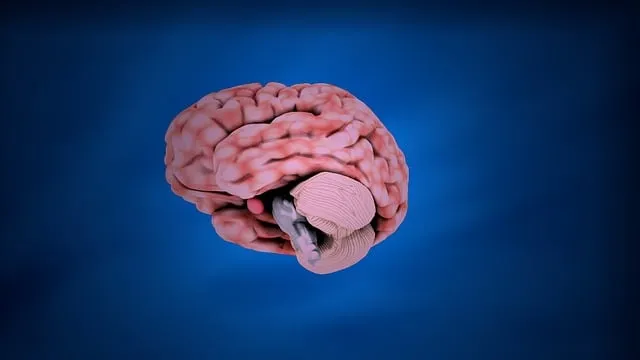The Centennial Kaiser Permanente mental health department employs a holistic approach to resilience-building, integrating RFM (Resilience, Flexibility, Mastery) exercises into care. Using this framework, they identify and target individuals' varying needs, optimizing programs like Self-Esteem Improvement and Depression Prevention. Through tailored self-care routines and Compassion Cultivation Practices, patients gain tools to navigate challenges. This data-driven method ensures resources reach those most in need, leading to improved mental wellness outcomes. Measuring success with pre/post surveys and participant feedback shows RFM exercises' effectiveness in enhancing resilience within the Centennial Kaiser Permanente mental health department number.
“Resilience is a cornerstone of emotional well-being, especially in navigating life’s challenges. The RFM (Resources, Factors, and Mastery) model emerges as a powerful tool for building resilience. This article explores the integration of RFM into mental health initiatives, with a focus on the transformative impact at the Centennial Kaiser Permanente Mental Health Department. We provide an in-depth case study highlighting their innovative approach.
Additionally, we offer a comprehensive guide to implementing RFM exercises, discuss benefits and challenges, and emphasize the importance of measuring success in RFM programs.”
- Understanding RFM and its Role in Resilience Building
- The Centennial Kaiser Permanente Mental Health Department: A Case Study
- Implementing RFM Exercises: Step-by-Step Guide
- Benefits and Challenges of RFM for Resilience Development
- Measuring Success: Evaluating the Impact of RFM Programs
Understanding RFM and its Role in Resilience Building

Resilience is a cornerstone of overall well-being, and the Role of Frequency, Recency, and Money (RFM) analysis offers valuable insights for enhancing it, especially within mental health contexts like the Centennial Kaiser Permanente department. This simple yet powerful framework segments customer behavior, enabling organizations to identify individuals with higher or lower engagement levels. For mental health professionals, RFM can be a game-changer in tailoring interventions for diverse client needs.
By understanding that frequent interaction doesn’t always equate to positive outcomes, and recent activity is more indicative of current mental state, the Centennial Kaiser Permanente mental health department number can optimize its Self-Esteem Improvement and Depression Prevention programs. This approach facilitates the development of targeted Mental Wellness Coaching Programs, ensuring resources are directed effectively towards those who need them most, fostering a holistic environment for improved mental wellness.
The Centennial Kaiser Permanente Mental Health Department: A Case Study

The Centennial Kaiser Permanente Mental Health Department serves as a shining example of an institution prioritizing holistic mental wellness. Through innovative initiatives and a multi-faceted approach, they’ve demonstrated the power of integrating resilience-building exercises into routine care. This focus on nurturing inner strength and fostering positive thinking has led to significant improvements in patient outcomes.
By implementing tailored self-care routine development programs, Kaiser Permanente has empowered individuals to take charge of their mental health. These strategies not only enhance coping mechanisms but also encourage a sense of agency, enabling patients to navigate life’s challenges with greater resilience. This case study underscores the importance of integrating evidence-based practices into healthcare systems, ultimately fostering a culture that prioritizes and supports long-term mental well-being.
Implementing RFM Exercises: Step-by-Step Guide

Implementing RFM (Resilience, Flexibility, and Mastery) Exercises within organizations, such as the mental health department at Kaiser Permanente, involves a structured approach to enhance employee well-being and performance. Here’s a step-by-step guide to integrate these practices effectively:
1. Initiate with Training: Kickstart the process by organizing workshops or training sessions dedicated to RFM concepts. Educate employees about resilience, its significance in stress management, and how it contributes to overall emotional well-being. Introduce Compassion Cultivation Practices (CCP) as a foundational tool for cultivating empathy and reducing stress.
2. Personalize Resilience Exercises: Tailor exercises to cater to individual needs. Offer a range of options, including mindfulness practices, breathing techniques, and cognitive reframing. For instance, encourage employees to practice ‘Body Scans’ for relaxation or employ ‘Positive Affirmations’ to boost confidence. The goal is to empower individuals to find what works best for them.
3. Foster Flexibility Training: Organize group activities focused on adaptability and problem-solving. Role-playing scenarios can help employees navigate challenging situations, fostering a sense of control and flexibility in their responses. This step aligns with the Centennial Kaiser Permanente mission to promote emotional well-being through innovative techniques.
4. Encourage Mastery Experiences: Create opportunities for employees to take on new challenges and develop mastery over tasks. Whether it’s training sessions or project assignments, encourage a growth mindset where learning and improvement are emphasized. This builds resilience by helping individuals see setbacks as stepping stones to success.
5. Regular Practice Sessions: Integrate daily practice into the work routine. Short, regular sessions of mindfulness or positive affirmations can significantly impact overall resilience. Ensure these practices become part of an employee’s typical day, enhancing their ability to handle workplace pressures effectively.
6. Monitor and Adapt: Regularly assess the RFM program’s effectiveness through feedback mechanisms. Tailor exercises based on collective insights and individual progress. This continuous improvement approach ensures that the initiatives remain relevant and impactful in promoting confidence-boosting techniques and fostering a resilient work culture.
Benefits and Challenges of RFM for Resilience Development

The implementation of RFM (Resilience, Flexibility, and Mastery) exercises within organizations like the Centennial Kaiser Permanente mental health department has shown significant promise in enhancing resilience among employees. These structured programs aim to strengthen individuals’ ability to cope with stress, adapt to change, and maintain a sense of control over their lives. By combining various techniques such as mindfulness, cognitive-behavioral therapy, and problem-solving skills training, RFM fosters mental agility and emotional resilience. This, in turn, can lead to improved job satisfaction, increased productivity, and better overall well-being for staff members.
However, integrating RFM into existing work environments also presents several challenges. One of the primary difficulties is ensuring that these exercises are accessible and appealing to a diverse workforce with varying levels of mental health awareness and engagement. Additionally, balancing the benefits of RFM with operational demands can be tricky, as scheduling dedicated time for resilience training might disrupt daily operations. Effective implementation requires careful planning, tailored guidance, and potentially even public awareness campaigns to educate employees about the value of mental health initiatives like RFM. The success lies in creating a supportive culture where crisis intervention guidance is readily available alongside social skills training, enabling individuals to build resilience at their own pace and according to their unique needs.
Measuring Success: Evaluating the Impact of RFM Programs

Measuring success is a vital aspect of any program’s implementation, especially when it comes to Resilience Building exercises within the Centennial Kaiser Permanente mental health department. The impact of these initiatives can be profound, but evaluating their effectiveness requires a structured approach. By utilizing various assessment tools and collecting feedback from participants, the department can gauge the success of RFM programs.
One key metric is tracking improvements in mood management over time. This could involve pre- and post-program surveys to assess changes in emotional well-being, stress levels, and coping strategies. Additionally, Social Skills Training outcomes can be measured by observing interactions during group sessions and collecting participant reports on their ability to build connections and maintain healthy relationships. These qualitative and quantitative data points provide a comprehensive view of the program’s reach and positive influence on individuals’ mental health journeys.
The implementation of RFM exercises, as demonstrated by the successful case study at the Centennial Kaiser Permanente Mental Health Department, offers a powerful framework for building resilience. By combining mindfulness, physical activity, and social connection, this approach has shown significant benefits in enhancing mental well-being and coping mechanisms among participants. As highlighted in the article, the number of individuals benefiting from RFM programs is growing, making it an effective strategy to navigate life’s challenges. However, further research and tailored guidelines are needed to address potential challenges, ensuring these exercises remain accessible and impactful for diverse communities.






